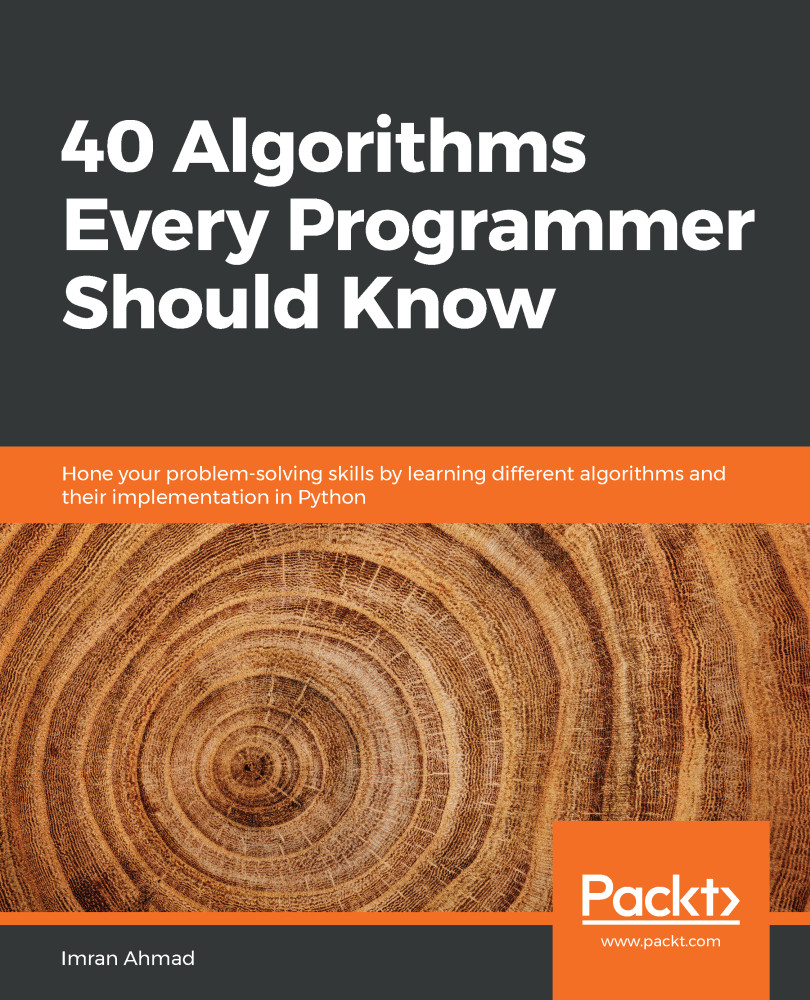In addition to designing, developing, and testing an algorithm, in many cases, it is important to consider certain practical aspects of starting to rely on a machine to solve a real-world problem as this makes the solution more useful. For certain algorithms, we may need to consider ways to reliably incorporate new important information that is expected to keep changing even after we have deployed our algorithm. Will incorporating this new information change the quality of our well-tested algorithm in any way? If so, how does our design handle it? And then, for some algorithms that use global patterns, we may need to keep an eye on real-time parameters that capture changes in the global geopolitical situation. Also, in some use cases, we may need to consider regulatory polices enforced at the time of use for the solution to be useful.
...-
Book Overview & Buying

-
Table Of Contents

40 Algorithms Every Programmer Should Know
By :

40 Algorithms Every Programmer Should Know
By:
Overview of this book
Algorithms have always played an important role in both the science and practice of computing. Beyond traditional computing, the ability to use algorithms to solve real-world problems is an important skill that any developer or programmer must have. This book will help you not only to develop the skills to select and use an algorithm to solve real-world problems but also to understand how it works.
You’ll start with an introduction to algorithms and discover various algorithm design techniques, before exploring how to implement different types of algorithms, such as searching and sorting, with the help of practical examples. As you advance to a more complex set of algorithms, you'll learn about linear programming, page ranking, and graphs, and even work with machine learning algorithms, understanding the math and logic behind them. Further on, case studies such as weather prediction, tweet clustering, and movie recommendation engines will show you how to apply these algorithms optimally. Finally, you’ll become well versed in techniques that enable parallel processing, giving you the ability to use these algorithms for compute-intensive tasks.
By the end of this book, you'll have become adept at solving real-world computational problems by using a wide range of algorithms.
Table of Contents (19 chapters)
Preface
Section 1: Fundamentals and Core Algorithms
 Free Chapter
Free Chapter
Overview of Algorithms
Data Structures Used in Algorithms
Sorting and Searching Algorithms
Designing Algorithms
Graph Algorithms
Section 2: Machine Learning Algorithms
Unsupervised Machine Learning Algorithms
Traditional Supervised Learning Algorithms
Neural Network Algorithms
Algorithms for Natural Language Processing
Recommendation Engines
Section 3: Advanced Topics
Data Algorithms
Cryptography
Large-Scale Algorithms
Practical Considerations
Other Books You May Enjoy
